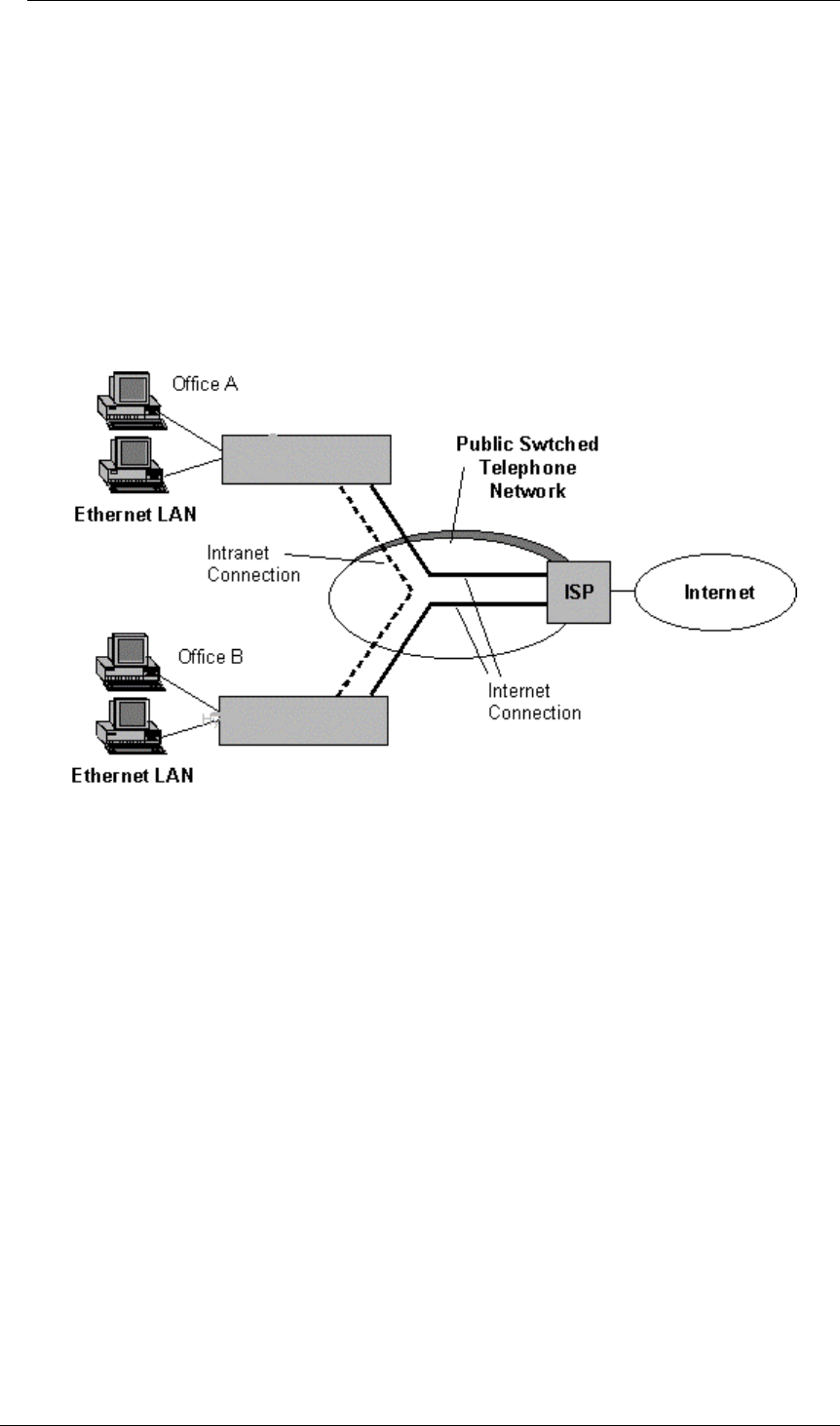
Concepts and Principles of Operation
9
Internet and Intranet Connection Profiles
Hypertec ISDN 10T Router maintains two connection profiles one for Internet and the other for
Intranet. The Internet connection by definition is for users to reach Internet, the Intranet connection is
made between two offices. The Internet profile contains the configuration parameters required by the
Internet connection. The categories available under Internet profile are : ISDN, PPP, IP, and NAT. The
Intranet profile contains the configuration parameters required by the Intranet connection. The
categories available under the Intranet profile are ISDN, PPP, IP, IPX, and Bridge. NAT is intended
for Internet only where security and ISP monthly charge is of concerned. The IPX and Bridging
functions are intended for Intranet where protocols other than IP may be required. Users should make
sure not to configure conflicting information between these two profiles, such as setting the same
remote IP address or ISDN dialing number to both profiles. These two types of connections are shown
in Figure 0-1, Internet and Intranet Connections.
Figure 0-1, Internet and Intranet Connections
IP Address and Subnet Mask
The address used for IP routing is the IP address. An IP Address is a 32-bit address which must be
assigned to every host that wants to use IP to communicate across the Internet. If you are connecting to
the Internet, in general the IP addresses of the computers and router are assigned from your Internet
service provider unless Network Address Translation (NAT) is used which we will discuss later.
The IP address are specified in a.b.c.d where a,b,c,d are each decimal numbers between 0 and 255 with
some restrictions applied. The Hypertec Router Ethernet IP address must be on the same network as
your PCs on the LAN. A network can be subnetted into one or more physical networks which form a
subset of the main network. The Subnet Mask is a number identifying a subnet within a network.
Routing Table
In order to move data from port to port, the router has to make routing decision based on the routing
table. Each routing entry describes what network can be reached through which interface via a certain
gateway.
Some routing entries are system created based on the router interface configuration. Some routing
entries may be created by users & classified as static routes, and other may be created based on the
information learned from the router protocol (eg. RIP). Static Routes are a cost-saving feature which
avoids running RIP over WAN links. The active route is advertised by Hypertec Router via RIP (if
enabled) on its LAN interface. For the Hypertec ISDN router, the default route created by the system is
automatically set toward Internet remote router. Users need to enter static route entries only when there
are multiple subnets at the Intranet remote end.
IP Address, Un-Numbered, or Numbered


















